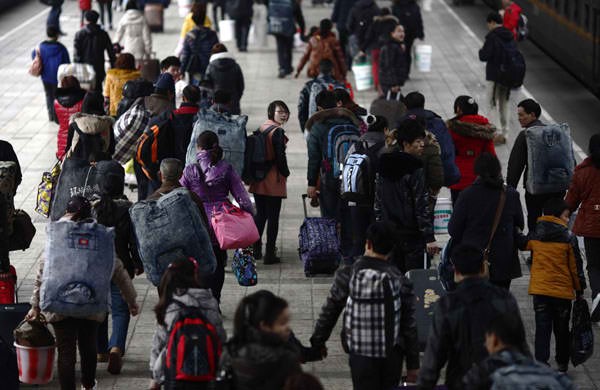Nearly 174 million Chinese travelers are expected to spend $264 billion traveling overseas within the next four years, thanks partly to more young tourists and easier visa arrangements, according to a new industry survey.
The survey, released by Hotels.com, said that Chinese outbound tourism has also been boosted by rising disposable income and increased urbanization.
In 2014, more than 107 Chinese made outbound trips, a 20-percent rise from the past year.
Now in its fourth year, the survey interviewed more than 3,000 Chinese outbound travelers and 1,500 hotel operators worldwide. It classified the younger generation as those aged between 18 and 35.
Around 60 percent of the hotels interviewed said that the number of Chinese tourists aged below 35 has risen and that the trend will continue.
Their growth is especially strong in the Asia-Pacific region, with 78 percent of hotels reporting an increase in those locations, the study said.
The survey also revealed that young tourists were less dependent on travel agencies compared to their older counterparts, and tended to post reviews of their travel experiences on social media.
An estimated 80 percent of respondents booked and planned their trips via mobile phones and computers over the past 12 months, a sharp increase from 53 percent in the past year.
2014 also saw the average daily spending of Chinese travelers reach $536, while 10 percent of respondents spent $2,225, and 5 percent spent $3,368.
Figures show Chinese tourists spent the most at hotels in New Zealand, Sweden and Argentina, while Australia, Japan, and France are the three most popular planned destinations over the next 12 months.
In the past year, the U.S. and Thailand were the top two destinations for outbound Chinese travelers, based on booking data from Hotels.com. Around 840,000 Chinese travelers visited Australia, an 18.4-percent rise from 2013.
Hotels.com regional marketing director Jessica Chuang said that the popularity of Australia and Japan was due to the continued depreciation in their currencies against the Chinese yuan.
"That means, simply, that Chinese travelers are able to spend more there," she said.






















